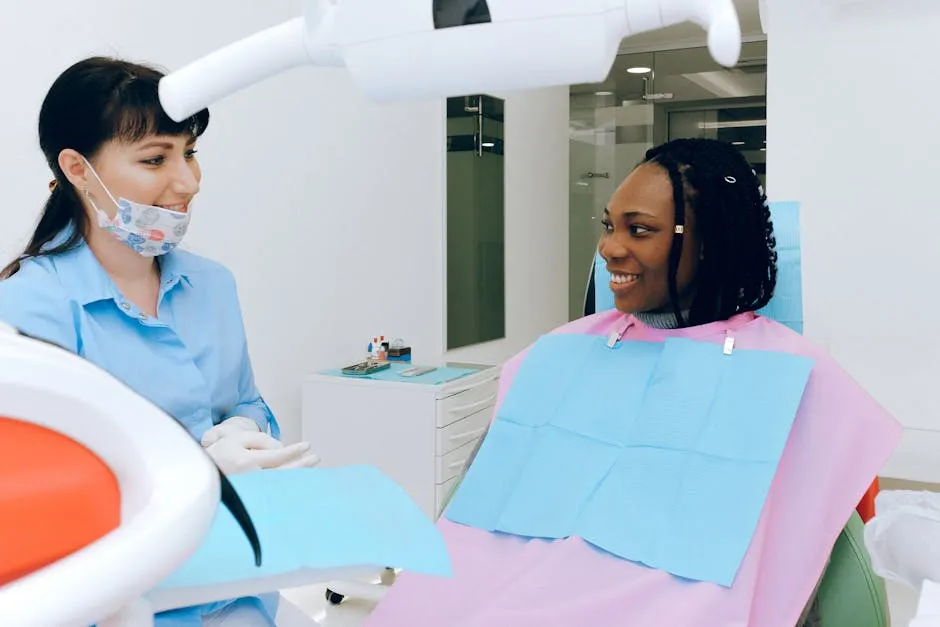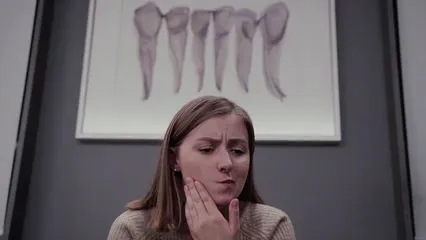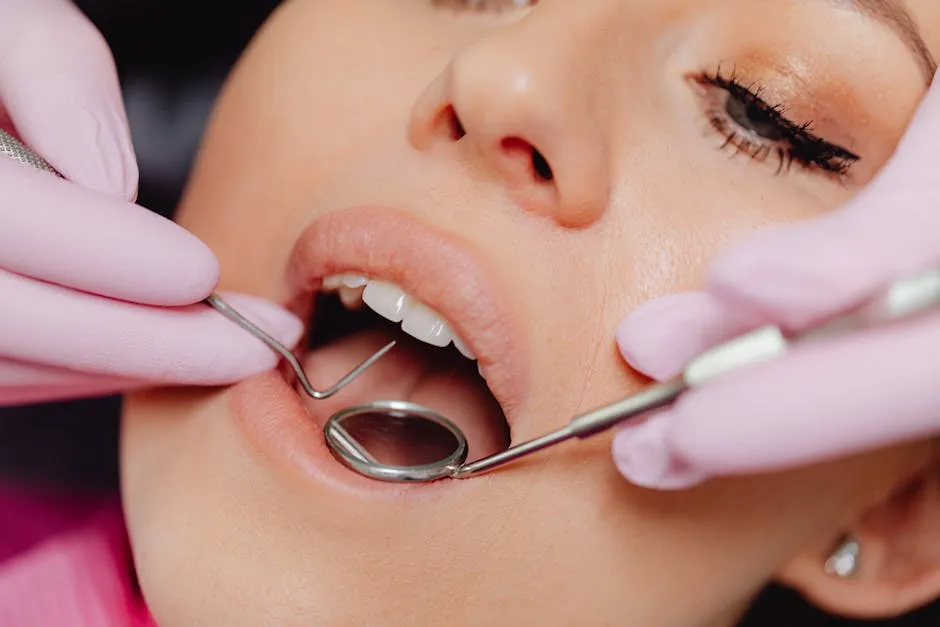
Why Do My Teeth Hurt When I Bite Down? Understanding the Causes and Solutions
Why Do My Teeth Hurt When I Bite Down? Understanding the Causes and Solutions
Introduction
Have you ever bitten into something, only to feel a sharp pain in your tooth? You’re not alone! Many people experience this discomfort. Understanding why your teeth hurt when you bite down is crucial. It helps you seek the right treatment. In this article, we will look at various causes of this pain and explore possible solutions.
To keep your teeth in tip-top shape and avoid those cringe-worthy moments, consider investing in an Oral-B Pro 1000 Electric Toothbrush. It packs a punch with its 3D cleaning action, ensuring your pearly whites are well taken care of. Because let’s face it, nobody enjoys a toothache!

Summary and Overview
Tooth pain when biting down can signal underlying dental issues. It’s a common problem, often affecting adults. This article will address both dental and non-dental causes of biting pain. Consulting a dentist is vital if the pain persists. We’ll cover possible causes, treatments, and preventive measures in the sections ahead.
By understanding these factors, you can take proactive steps to maintain your oral health. Speaking of proactive, consider adding Colgate Total Whitening Toothpaste to your dental routine. It fights cavities and whitens your smile, making it a two-for-one deal that you can’t resist.
Possible Causes of Tooth Pain When Biting Down
Dental Causes
1. Tooth Decay and Cavities
Tooth decay is a common issue that can cause pain when biting down. Cavities form when bacteria in plaque produce acids that erode tooth enamel. This process creates small holes, or cavities, which often go unnoticed until symptoms appear. You might feel sensitivity or a sharp pain, especially when consuming sweets or hot and cold foods. In fact, about 90% of adults will experience cavities at some point in their lives. This prevalence highlights the importance of maintaining good dental health. When pressure is applied to a decayed tooth, it can amplify discomfort, making the pain more pronounced. If you suspect you have cavities, don’t wait! Schedule a dental exam as soon as possible to prevent further damage.
Why not take a step towards prevention with Waterpik Aquarius Water Flosser? This nifty gadget helps you clean between your teeth, removing plaque and debris that your toothbrush may miss. Trust me, your dentist will thank you!

2. Cracked or Fractured Teeth
Cracked or fractured teeth are another common source of pain when biting. These cracks can occur from biting hard foods or due to wear over time. Symptoms often include sharp pain during chewing but may not be obvious at first glance. Diagnosing hairline fractures can be tricky, as they might not show up on standard X-rays. Thus, it’s essential to consult a dentist who can evaluate your situation carefully. They may recommend X-rays or special tests to determine if a crack is present. If you think you might have a cracked tooth, don’t hesitate to seek professional help for proper treatment.
And while you’re at it, why not ensure you have the right tools? A Dental Hygiene Kit can help you keep an eye on your dental health at home. It’s like having your dentist’s tools right in your bathroom!

3. Loose Fillings or Crowns
Loose fillings or crowns can lead to discomfort when biting down. Over time, fillings may wear out or become dislodged, causing them to move slightly. This movement can create pressure points, resulting in pain. Identifying a loose restoration isn’t always easy, but you might notice sensitivity when chewing or a rough feeling around the area. If you suspect your fillings or crowns are loose, it’s wise to check with your dentist promptly. They can assess the situation and recommend repairs or replacements as necessary to alleviate discomfort and ensure your dental health remains intact.
4. Gum Disease
Gum disease, or periodontal disease, can cause significant tooth sensitivity. This condition occurs when bacteria infect the gums, leading to inflammation and damage. As the disease progresses, the gums may recede, exposing sensitive tooth roots. When you bite down, this exposed area can trigger sharp pain.
Common symptoms of gum disease include swollen, bleeding gums and persistent bad breath. You might also notice spaces forming between your teeth. If you experience any of these signs, it’s essential to see a dentist. A great way to combat gum disease is with Listerine Antiseptic Mouthwash, which can help kill the bacteria causing the problem.

Statistics reveal that nearly half of adults over 30 have some form of gum disease. This prevalence emphasizes the need for regular dental check-ups and cleanings. If you suspect gum disease, don’t wait for pain to worsen. Schedule a cleaning to help maintain your oral health and prevent further complications. Taking action now can save you future discomfort and costly treatments.
Non-Dental Causes
5. Sinus Issues
Sinus issues can surprisingly link to tooth pain. The roots of your upper teeth sit close to your sinuses. When sinuses become inflamed due to infection, they can exert pressure on these roots, resulting in discomfort. This phenomenon is often referred to as a sinus toothache.
Symptoms of a sinus infection include nasal congestion, facial pressure, and headaches. If you experience tooth pain alongside these symptoms, it may indicate sinus involvement.
To manage persistent sinus problems, seek treatment from a healthcare provider. Addressing sinus issues can relieve tooth pain and enhance your overall well-being. Also, consider using a Sinus Rinse Kit to help clear out congestion.

6. TMJ Disorders
TMJ disorders affect the jaw joint and can lead to significant discomfort. This joint connects your jaw to your skull. When it’s not functioning properly, it can cause pain in your jaw and teeth, especially when biting down.
Common symptoms of TMJ disorders include jaw pain, clicking sounds, and difficulty opening your mouth. Stress, teeth grinding, or jaw injuries can contribute to these disorders. If you suspect TMJ issues, consulting a specialist is vital. They can provide guidance and treatment options to alleviate your discomfort. Addressing TMJ disorders early can help you regain comfort and improve your quality of life.

7. Other Possible Causes
Tooth pain when biting down can stem from various unexpected factors. One common culprit is bruxism, or teeth grinding. Many people grind their teeth unconsciously, often during sleep. This pressure can lead to sore teeth and jaw muscles. Stress is often a significant trigger for bruxism. Managing stress through lifestyle changes can help reduce grinding. For more information on managing bruxism, consider reading about why seeking professional help is crucial for managing bruxism.
Understanding the importance of seeking help can greatly improve your management of bruxism. why is seeking professional help crucial for managing bruxism in the coming months
Certain medications can also contribute to tooth discomfort. For example, some medications can cause dry mouth, reducing saliva production. Saliva plays a crucial role in protecting teeth from decay. When there’s less saliva, tooth sensitivity can increase, especially when biting down.
Additionally, hormonal fluctuations may affect tooth sensitivity. Women may notice changes during menstrual cycles or pregnancy. If you suspect bruxism or medication side effects are causing your pain, consider discussing stress management techniques or alternative treatments with your healthcare provider. Taking proactive steps can greatly improve your dental health and overall well-being. And hey, while you’re working on stress relief, why not try a Stress Relief Ball? It’s a fun way to squeeze out the tension!

Diagnosis
Diagnosing the cause of tooth pain is an essential step in finding relief. Your dentist will start with a thorough dental examination. This evaluation often includes checking for cavities, cracks, or gum disease. X-rays may be necessary to identify underlying issues not visible to the naked eye. These images help assess the health of your teeth and jawbone.
A dental diagnosis is crucial for effective treatment. It’s important to address tooth pain early on. Waiting too long can lead to more severe issues, requiring complicated procedures. If you experience persistent pain, don’t hesitate! Early consultation with a dentist can make all the difference in your recovery and comfort.
Treatment Options
When your teeth hurt while biting down, addressing the underlying cause is vital. Treatment options vary based on the issue. For cavities, a dental filling can restore the tooth’s integrity. If the decay is extensive, a crown might be necessary. Cracked teeth often require bonding or a crown to protect them from further damage.
For loose fillings or crowns, your dentist will assess the situation and may replace them to prevent discomfort. In severe cases, root canal therapy might be necessary to remove infected tissue. To ease the pain while waiting for your appointment, consider a topical solution like Toothache Relief Gel for immediate relief!

Preventive care plays a crucial role in maintaining dental health and avoiding future pain. Regular dental check-ups help identify issues early and allow for timely treatments. Good oral hygiene, including brushing and flossing, significantly reduces the risk of cavities and gum disease. Don’t forget to keep those toothbrushes clean with a Toothbrush Sanitizer!
Make it a priority to schedule your regular dental visits. Proactive care helps keep your smile healthy and pain-free. You can also explore Fitness Trackers to keep track of your overall health, as a healthy lifestyle can greatly benefit your dental health as well!

Conclusion
Addressing tooth pain promptly is essential for your overall dental health. Various potential causes exist, from cavities to gum disease. Seeking professional evaluation is crucial to identify the specific issue.
Proactive dental health practices, such as regular check-ups and good oral hygiene, can help you avoid discomfort in the future. Remember, maintaining a healthy smile is a journey worth undertaking, and seeking help is the first step. And while you’re on this journey, consider adding a Teeth Whitening Pen to your dental arsenal for a dazzling smile!
Please let us know what you think about our content by leaving a comment down below!
Thank you for reading till here 🙂
All images from Pexels




